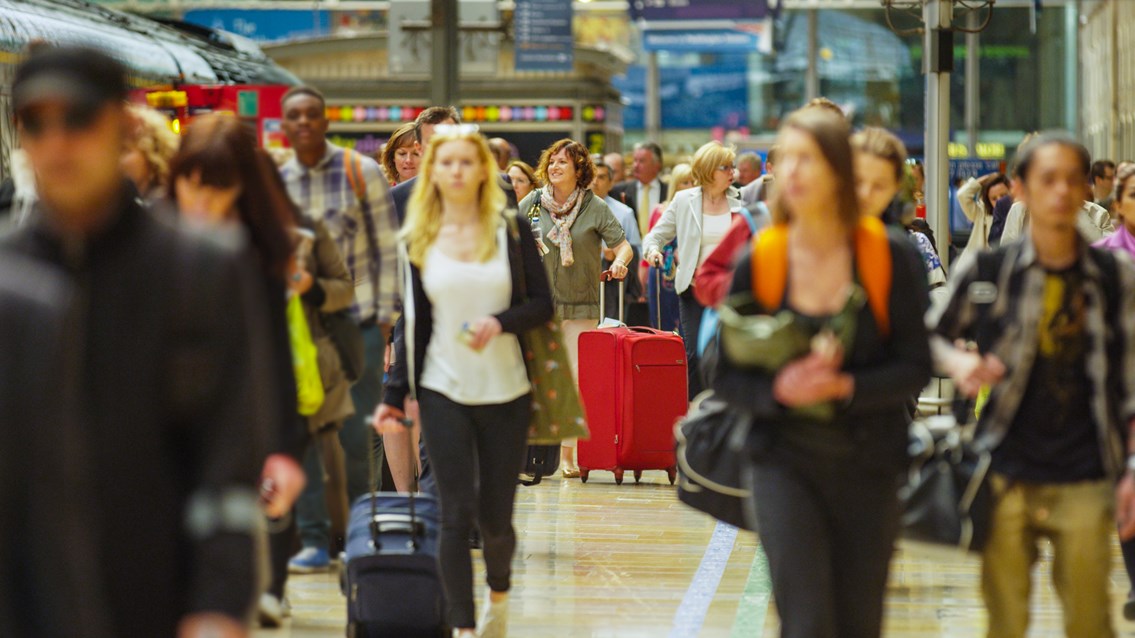Tuesday 7 Jun 2022
Talks continue in rail dispute
- Region & Route:
- National
Responding to news of strike dates being announced by the RMT, Andrew Haines, Network Rail’s chief executive, said:
“We continue to meet with our trades unions to discuss their pay concerns and we’re doing everything we can to avoid strike action on the railway. We know that the cost of living has increased and we want to give our people a pay rise, but the RMT must recognise we are a public body and any pay increase has to be affordable for taxpayers and passengers.
“Travel habits have changed forever and the railway must change as well. We cannot expect to take more than our fair share of public funds, and so we must modernise our industry to put it on a sound financial footing for the future. Failure to modernise will only lead to industry decline and more job losses in the long run.
“There are a few weeks until the first strike is planned. We will use this time to keep talking to our unions and, through compromise and common sense on both sides, we hope to find a solution and avoid the damage that strike action would cause all involved.”
Notes to Editors
Cost and impact of industrial action
- If it goes ahead, strike action would cost Network Rail around £30m each day, undermining our ability to afford pay increases.
Modernisation
- The rail industry has been hit hard by the Covid-19 pandemic. Passenger numbers have recovered somewhat, but are still only at 75 per cent of pre-pandemic levels. Demand and travel habits have changed – particularly in the commuter market – and so we have to change too.
- The Government has subsidised the rail industry to the tune of £16bn since the start of the pandemic to keep services running without furloughing a single worker. This is an average of almost £600 per household, and is clearly not sustainable, especially when other vital services like the NHS need public support. The railway should not take more than its fair share of public funds.
- It is therefore vital that we work with train operators and our trades unions to save millions of pounds and deliver a more efficient railway.
Safety
- Britain’s railway is the safest major network in Europe and we would never consider any changes that would make the railway or our people less safe. Any changes we propose would first need to be scrutinised and approved by the ORR.
- We have not tabled any formal proposals yet. We are discussing ideas and would welcome constructive dialogue with our unions as we develop formal plans.
Contact information
Passengers / community members
Network Rail national helpline
03457 11 41 41
Latest travel advice
Please visit National Rail Enquiries
Journalists
Network Rail press office - Kevin Groves
Head of Media
Network Rail
033 0854 3830 / 07887 896879
kevin.groves@networkrail.co.uk
About Network Rail
We own, operate and develop Britain's railway infrastructure; that's 20,000 miles of track, 30,000 bridges, tunnels and viaducts and the thousands of signals, level crossings and stations. We run 20 of the UK's largest stations while all the others, over 2,500, are run by the country's train operating companies.
Usually, there are almost five million journeys made in the UK and over 600 freight trains run on the network. People depend on Britain's railway for their daily commute, to visit friends and loved ones and to get them home safe every day. Our role is to deliver a safe and reliable railway, so we carefully manage and deliver thousands of projects every year that form part of the multi-billion pound Railway Upgrade Plan, to grow and expand the nation's railway network to respond to the tremendous growth and demand the railway has experienced - a doubling of passenger journeys over the past 20 years.
Follow us on Twitter: @networkrail
Visit our online newsroom: www.networkrailmediacentre.co.uk

